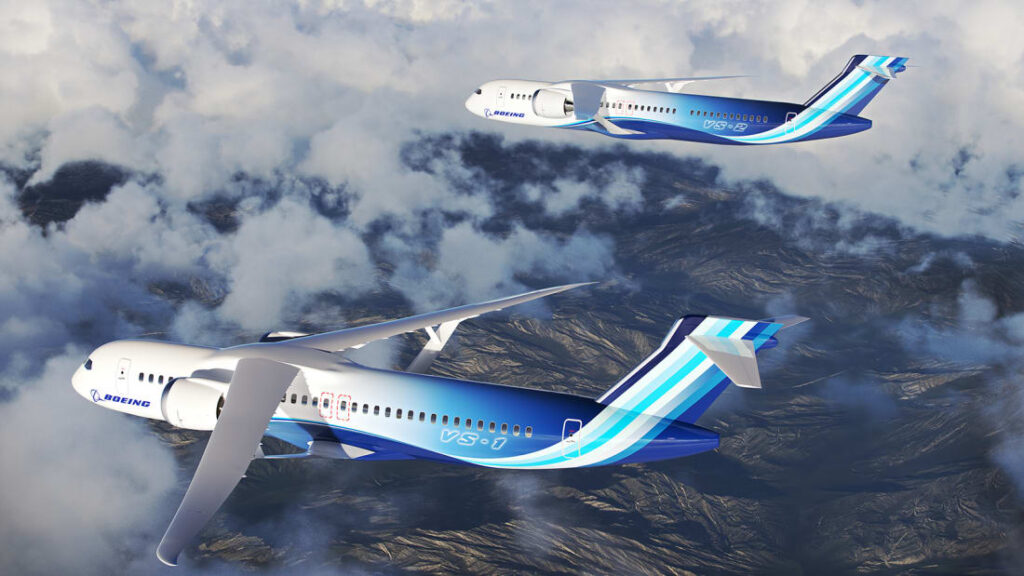Entertainment
Binance profits billions of USD, secretly transferring customers’ funds to the company controlled by CEO Changpeng Zhao.

The U.S. Securities and Exchange Commission (SEC) has accused Binance, the world’s largest cryptocurrency exchange, of mishandling customer funds. The company’s deception of regulatory authorities and U.S. investors regarding its operations is believed to pose a potential risk of reshaping the cryptocurrency industry
This marks the second lawsuit filed by the SEC this year against Binance, alleging that the exchange evades responsibility in protecting U.S. investors. The regulatory agency has long considered Binance, with an average daily trading volume of $65 billion, as a primary target in the effort to promote transparency and regulation in the cryptocurrency industry.
In the lengthy 136-page complaint, the SEC alleges that Binance mixed billions of dollars of customers’ funds and subsequently secretly transferred them to a separate company named Merit Peak Limited, controlled by Binance founder Changpeng Zhao.

The complaint also asserts that Binance deceived investors regarding its detection and control systems for manipulative trading activities, as well as its efforts to restrict U.S. users on the international platform. These individuals were only supposed to have access to Binance.US, a separate company established to operate in the United States.
“Binance and Mr. Zhao have enriched themselves to the tune of billions of dollars while exposing investors to the risks,” regulators stated in a civil lawsuit filed in the U.S. District Court in Washington.
In a recent blog post, Binance claimed to have attempted to negotiate a settlement with regulatory agencies while expressing “disappointment” and “displeasure” with the SEC’s decision to file the lawsuit. The exchange stated that “this is an error” and asserted that it would vigorously defend itself.
According to The New York Times, the allegations are the latest move by regulatory authorities to curb the expansion of digital currency transactions and enforce compliance with U.S. laws by major players. Sam Bankman-Fried, the founder of FTX, a rival exchange to Binance before it filed for bankruptcy, has also faced a court trial in October following a series of allegations. In recent months, the SEC has also taken administrative enforcement actions against several cryptocurrency lending companies.
Reena Aggarwal, a finance professor at Georgetown University, stated, “U.S. regulators are posing significant challenges for Binance and continue to keep an eye on the world of digital currencies.”

In March, the Commodity Futures Trading Commission (CFTC) filed a lawsuit against Binance and Mr. Zhao. The Department of Justice is also investigating the exchange over suspicions of money laundering. Attorney David Silver stated that the SEC’s complaints have “exposed the dark side of digital currencies” and Binance’s deception of customers over the years.
In total, the SEC has brought forth 13 allegations against Binance and Mr. Zhao. The agency is also seeking compensation from Binance while aiming to prevent CZ from leading any entity registered in the United States.
Gurbir S. Grewal, the Director of the SEC’s Enforcement Division, stated, “We allege that Zhao and Binance intentionally evaded regulations, exposing customers and investors to risks.“
It is reported that the CFTC is seeking to permanently expel Binance from the United States. While the CFTC and SEC often collaborate in investigations, it is unclear which agency will play the primary role in regulating digital currency transactions.
Moreover, Binance is accused of concealing its ties to China for several years, according to the Financial Times. This contradicts previous statements by executives that the cryptocurrency exchange had severed connections with the mainland after the industry-wide crackdown in late 2017.
According to the allegations, CEO Changpeng Zhao and several senior executives repeatedly instructed Binance employees to conceal the company’s operations in China, including the use of an office until at least late 2019 and a Chinese bank for employee salaries.
In 2017, when China began tightening regulations on the cryptocurrency market, over 60 exchanges came under scrutiny. Many exchanges based in China had to announce their relocation abroad to avoid being shut down. Binance claimed to have completely ceased operations in the country.
However, in reality, the exchange continued to operate discreetly in the populous nation, even attempting to conceal the scope and locations of its activities when under surveillance by regulatory authorities. Binance is also accused of intentionally not disclosing the locations of its operational offices to evade regulations.
At the end of 2019, Employees were reminded: “Binance has offices in Malta, Singapore, and Uganda. Please do not confirm information about any other offices, including China.”
On March 27th, the CFTC filed a lawsuit in federal court, accusing Binance and several executives of consistently violating trading rules while becoming the world’s largest cryptocurrency exchange. The CFTC also alleges that Binance instructed U.S. customers to use VPNs to circumvent regulations and access the exchange’s services.
“The U.S. is in the most significant geopolitical competition. The Committee on Foreign Investment in the United States (CFIUS) is concerned about any deals related to China,” cited a former CFIUS official, as reported by the Financial Times.
According to: The New York Times, FT
Entertainment
Gamers fervently demand a simple feature, but Diablo 4 refuses hastily, surprising reasons.
All things considered, this isn’t an excessively high demand from the Diablo 4 gamers.
Diablo 4 has been receiving a great deal of recognition and praise from the gaming community following the improvements made in the latest version. Furthermore, anticipation is even higher for the upcoming first expansion of Diablo 4, Vessel of Hatred, set to be released next year. However, many gamers are already feeling disappointed as their heartfelt desires and expectations are not being fully met by Blizzard.

Accordingly, right from the game’s initial release, Diablo 4 players earnestly requested Blizzard to make changes to the inventory system. Firstly, they suggested creating a separate storage space for gems and precious stones. Secondly, they requested a feature that would make it easier for players to manage their items through a sorting and filtering system based on the quality of the loot. The first part of the request was addressed in Season 2, while regarding the loot filtering feature, many were surprised to learn that Blizzard would not be adding this functionality, even in the upcoming expansion next year.

Originally, this wasn’t an overly difficult or complex request, which is why Blizzard’s hesitancy and delay in responding has left many Diablo 4 players feeling frustrated. To explain their decision, Blizzard states that the changes need to be interconnected to maintain coherence and logicality. Therefore, before considering the loot filtering feature, the company is striving to implement other related adjustments that affect the functionality and diversification of item types. Of course, this response still doesn’t satisfy many people, as this is something relatively simple and could easily be addressed straightforwardly.

In this first expansion, several new features are being considered, including the removal of the Codex of Power from player’s inventory and changes to health and mana potions, as well as buffs.
Entertainment
Rumors have been circulating about a live-action film about GTA, the creator of the series spoke out to confirm one thing.
Rumors have been circulating about a live-action film about GTA, the creator of the series spoke out to confirm one thing.
With the brand’s popularity, it’s understandable that fans are eagerly anticipating a GTA film. Two of the most shocking pieces of news in the gaming world last week were Nintendo’s announcement of a live-action film based on The Legend of Zelda franchise and Rockstar’s promise to unveil the release roadmap for GTA 6 in December. While seemingly unrelated, recently there has been a surprising rumor circulating online that GTA 6 will serve as a stepping stone for Rockstar and Take-Two to release a film specifically for this franchise.

Fundamentally, this is entirely feasible as, alongside its immersive role-playing elements that attract a large player base, GTA is also renowned for its storytelling, setting, and notably, a plethora of iconic main characters throughout the game series. This material is sufficient to launch a cinematic work, and GTA fans have every reason to look forward to it. However, Take-Two’s CEO, Strauss Zelnick, quickly denied this and admitted that they are not interested in any film projects in the near future.

The reason was promptly given right after. Essentially, Take-Two could invest its own money to make a film or a series about GTA, and its chances of success would be significant. However, the publisher seems unenthusiastic about venturing into this new field because it would consume a lot of time and effort. Licensing the brand to a third party to develop a film project is also not worth mentioning because even if the film generates significant buzz, the revenue that Take-Two would receive wouldn’t be substantial, especially when compared to the earnings they have already generated from the GTA brand, particularly during the past decade of milking GTA 5. In summary, from Take-Two’s perspective, producing a film or film series about GTA would not yield profitable results.

Therefore, despite the strong desire, it is highly unlikely that GTA fans will have the opportunity to witness a cinematic work based on this franchise in the future. However, everything can change over time, especially as the trend of adapting games into films has seen significant success recently, as exemplified by the cases of Cyberpunk 2077 and The Last of Us.
Read more: CS:GO Breaks Records with Surging Gamer Engagement and Increased Spending
Entertainment
Why do private jet aircraft fly at higher altitudes than commercial planes?
Besides the luxury and convenience to cater to ultra-rich customers, private jets operate at higher altitudes compared to commercial planes.
Typically, most commercial planes operate at an altitude of around 10.6 km (the specific altitude will be determined by the air traffic control along the route) and are certified to fly at altitudes of up to 12 km. Some specific wide-body aircraft, such as the Airbus A380, Airbus A350, and Boeing 787, have certifications for even higher altitudes, reaching up to 13.1 km (with some variants, such as the 787-10 and A350-1000, evaluated at slightly lower altitudes of 12.52 km and 12.6 km). However, due to air traffic constraints, they may not regularly operate at these altitudes.
Meanwhile, most medium and large private jet aircraft typically operate at higher altitudes than this, sometimes surpassing the permitted limits due to reduced air traffic and fewer restrictions. According to Simple Flying, many types of private jet aircraft, including the Gulfstream G650 and G650ER, Bombardier Global Express, or Challenger jet, Cessna Citation X, and Dassault Falcon 7X, are certified to fly at altitudes of 15.5 km. In contrast, Embraer Legacy and Praetor, along with Cessna Citation Longitude and Excel jets, have certifications for slightly lower altitudes, limited to 13.7 km, as reported by Interesting Engineering. There are several explanations for the significant difference in cruising altitude between private jets and commercial planes during cruise mode, according to Interesting Engineering.
Safety Standards
Safety is the top priority for all aircraft, but private jets have more flexibility in regulations and systems. In the event of a cabin pressure loss, commercial planes must rapidly descend to a safe altitude below 3 km to provide sufficient oxygen for passengers.

This requirement demands specific design considerations for the aircraft’s structure and engines, as well as the installation of safety equipment such as oxygen masks and emergency slides. In contrast, private jet engines can facilitate quicker descent, and their cabin pressure and oxygen supply systems may vary. The risk of damage to the fuselage due to engine malfunctions is also lower for private jets, as their engines are located at the rear of the aircraft, far from the pressurized cabin.
Private Jets are Faster and More Efficient
Flying at higher altitudes also brings performance and fuel efficiency benefits. At higher altitudes, the air is thinner and cooler, improving the performance of jet engines and reducing fuel consumption. Of course, this must be balanced with the fuel required for the aircraft to reach such altitudes, which can be a challenge for heavier commercial planes.
The engines of private jets also have a higher bypass ratio, meaning they utilize more air from the core rather than the fan surrounding the core. This optimizes engine performance at higher altitudes.
The Importance of Aircraft Size
Private jet aircraft are designed to be flexible and efficient, with a higher power-to-weight ratio than commercial planes. This means they can climb and maintain speed at higher altitudes, where the air is thinner and there is less drag.

On the other hand, commercial planes are heavier and bulkier due to the need to carry many passengers and cargo. They also require large wings to support their weight at higher altitudes. This is why some aircraft models, such as the Boeing 777X, have folding wings to save ground space.
Smoother Experience at Higher Altitudes
Weather and turbulence in the air also affect comfort and safety during flight. When flying at an altitude of 10.6 km, commercial planes are almost unaffected by weather phenomena, but they may still encounter turbulence caused by wind shear or jet streams. This can cause discomfort for passengers and the flight crew, as well as put pressure on the aircraft’s structure. Private jets can avoid these issues by flying even higher, where the air is calmer and less turbulent. Private jet pilots also have more options to change direction or altitude in case of bad weather or air turbulence.
Reduced Air Traffic
Air traffic is another factor that influences the choice of altitude. Commercial planes must adhere to predetermined flight paths and altitudes, which are often crowded due to the numerous planes operating at these levels.
This can lead to issues such as flight delays, rerouting, increased fuel consumption, and emissions. In contrast, private jets have more freedom in choosing routes and altitudes, which are less congested than common altitudes. This helps save time and money while reducing environmental impact.
Source: Interesting Engineering
Read more: Elon Musk’s satellites has been warned that it could ‘crash’ into the Earth like an asteroid.
-

 AI1 year ago
AI1 year agoAI only needs to listen to the sound of keystrokes to predict the content, achieving an accuracy rate of up to 95%
-

 AI2 years ago
AI2 years agoMusk aims to create a super AI to rival ChatGPT
-

 Mobile2 years ago
Mobile2 years agoProduction issue with iPhone 15 display raises concerns among users
-

 Entertainment2 years ago
Entertainment2 years agoSurprisingly, a single YouTube video has the potential to cause serious harm to Google Pixel’s top-of-the-line smartphone
-

 AI2 years ago
AI2 years agoUpon its debut, Google’s chatbot Bard dealt a cold blow to its very creator.
-

 Entertainment2 years ago
Entertainment2 years agoCS:GO Breaks Records with Surging Gamer Engagement and Increased Spending
-

 Crypto1 year ago
Crypto1 year agoExplore in detail about Web 3
-

 Tips & Tricks2 years ago
Tips & Tricks2 years agoHow to distinguish AI-generated photos?













